Holiday gift guide 2023: New books by UC Berkeley authors
From young adult fiction about an internal organization of spies to a story of nature’s toxins, the subjects of this year’s books are wide-ranging, a reflection of the authors on our dynamic and diverse campus.
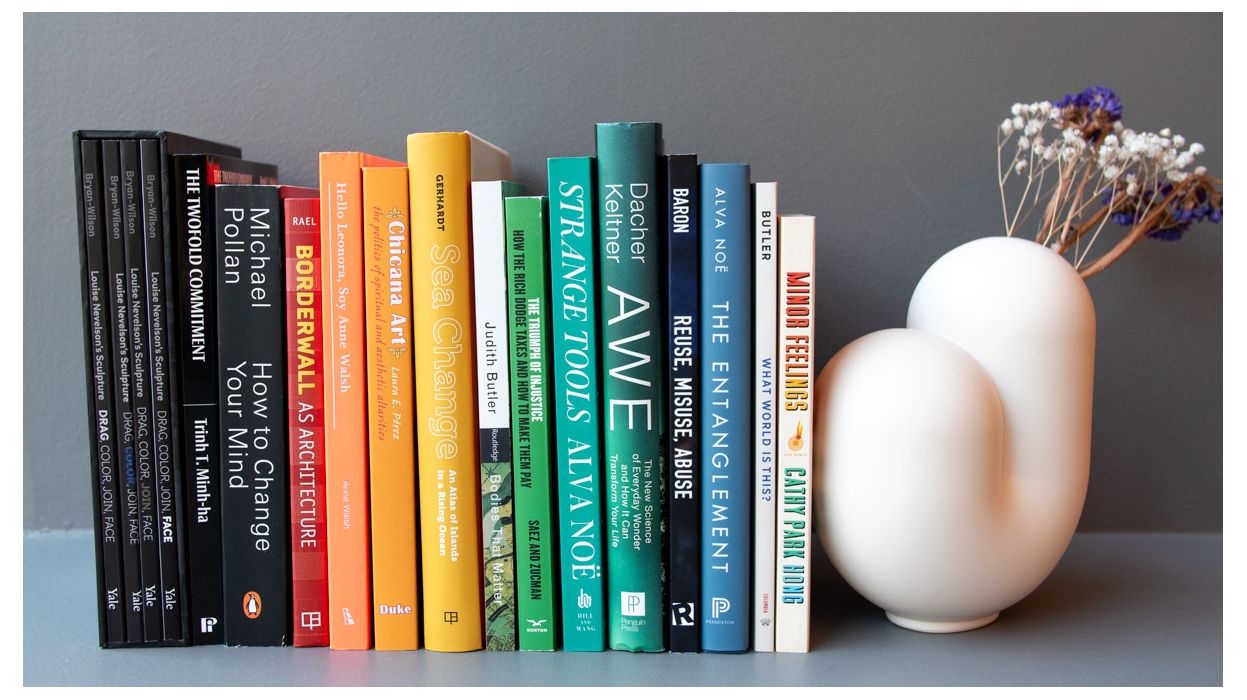
Eva Kalea
December 4, 2023
For the past several years, Berkeley News has published a gift guide that includes places on campus to find gifts and crafts for the holidays.
This year, though, we decided to focus on the most popular annual section — new books by members of the UC Berkeley community — for people searching for the perfect book for a friend or loved one. From young adult fiction about an internal organization of spies protecting people of color to a memoir on the imperfections of love to a story of nature’s toxins, the subjects of this year’s books are wide-ranging, a reflection of the authors on our dynamic and diverse campus.
And don’t worry — holiday events and pop-up shops are still happening this year and can be found on our events calendar. If we missed a book published in 2023 by a current Berkeley faculty, staff, student or visiting scholar that you think should be on the list, email me, Anne Brice, at [email protected], and our team will do its best to include it. Thanks very much — and enjoy!
Puta Life: Seeing Latinas, Working Sex (Dissident Acts) by Juana María Rodríguez, professor of comparative ethnic studies
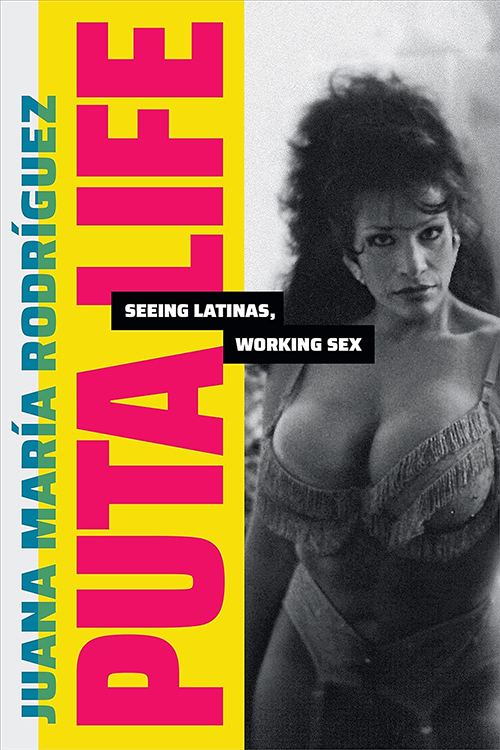
From Duke University Press: “In Puta Life, Juana María Rodríguez probes the ways that sexual labor and Latina sexuality become visual phenomena. Drawing on state archives, illustrated biographies, documentary films, photojournalistic essays, graphic novels, and digital spaces, she focuses on the figure of the puta — the whore, that phantasmatic figure of Latinized feminine excess. Rodríguez’s eclectic archive features the faces and stories of women whose lives have been mediated by sex work’s stigmatization and criminalization— washerwomen and masked wrestlers, porn stars and sexiles. Rodríguez examines how visual tropes of racial and sexual deviance expose feminine subjects to misogyny and violence, attuning our gaze to how visual documentation shapes perceptions of sexual labor.”
Also, read a Berkeley News Q&A with Rodríguez: “Juana María Rodríguez: Sex work is a queer issue.”
The Pecking Order: Social hierarchy as a philosophical problem by Niko Kolodny, professor of philosophy
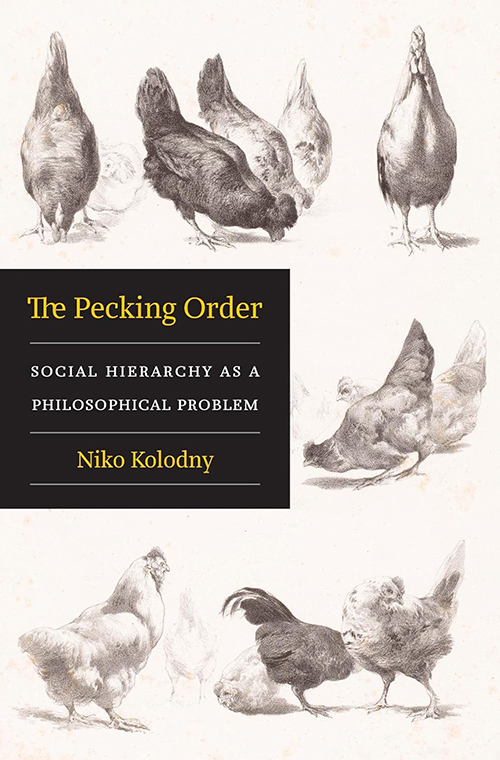
From Harvard University Press: “A trenchant case for a novel philosophical position: that our political thinking is driven less by commitments to freedom or fairness than by an aversion to hierarchy.
“Niko Kolodny argues that, to a far greater extent than we recognize, our political thinking is driven by a concern to avoid relations of inferiority. In order to make sense of the most familiar ideas in our political thought and discourse — the justification of the state, democracy, and rule of law, as well as objections to paternalism and corruption — we cannot merely appeal to freedom, as libertarians do, or to distributive fairness, as liberals do. We must instead appeal directly to claims against inferiority — to the conviction that no one should stand above or below.”
Also, check out The Entanglement: How Art and Philosophy Make Us What We Are by Alva Noë, professor and chair in the Department of Philosophy
Pleasure and Efficacy: Of Pen Names, Cover Versions, and Other Trans Techniques by Grace Lavery, associate professor of English
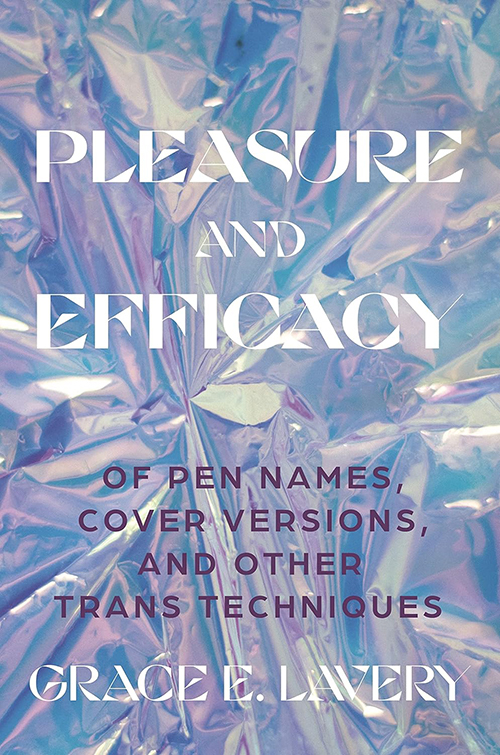
From Princeton University Press: “In Pleasure and Efficacy, Grace Lavery investigates gender transition as it has been experienced and represented in the modern period. Considering examples that range from the novels of George Eliot to the psychoanalytic practice of Sigmund Freud to marriage manuals by Marie Stopes, Lavery explores the skepticism found in such works about whether it is truly possible to change one’s sex. This ambivalence, she argues, has contributed to both anti-trans oppression and the civil rights claims with which trans people have confronted it.”
Untraceable by Aya de León, lecturer in the Department of African American and African Diaspora Studies; director of Poetry for the People
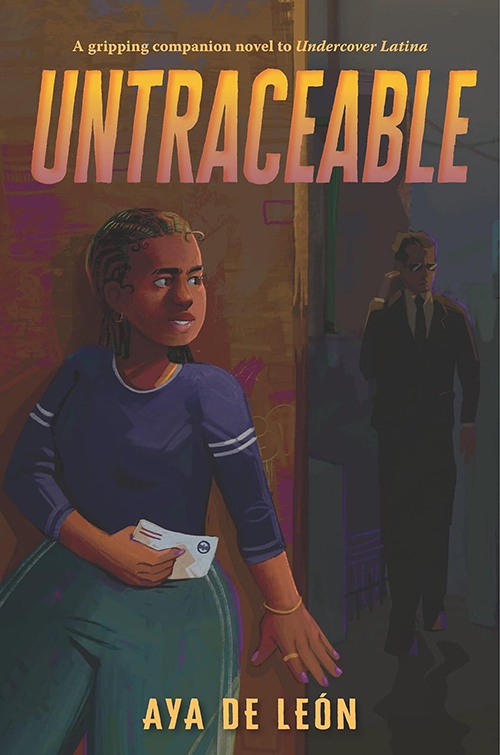
From Penguin Random House: “With gripping results, this companion novel to Undercover Latina returns to the high-stakes world of the Factory — an international organization of spies protecting people of color.
“Fifteen-year-old Amani Kendall’s biggest problem is being the only plus-size Black girl at a white private school — until her house burns down and her family is unexpectedly on the run. Suddenly, she’s reeling from the news that her formerly boring mom is being pursued by an ex-boyfriend turned stalker, and her scientist dad has gone MIA. At the same time, she has to navigate an underfunded school in the city, suffering the cultural whiplash of being surrounded by other Black students, including the cute boy who’s an old family friend.”
Negro Mountain by C.S. Giscombe, professor and Robert Hass Chair in English
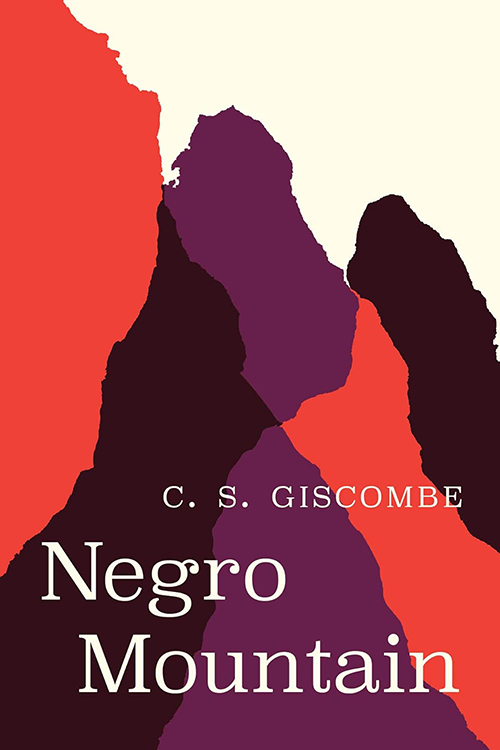
From University of Chicago Press: “A cross-genre poetry collection that troubles the idea of poetic voice while considering history, biology, the shamanistic, and the shapes of racial memory.
“In the final section of Negro Mountain, C. S. Giscombe writes, ‘Negro Mountain — the summit of which is the highest point in Pennsylvania — is a default, a way among others to think about the Commonwealth.’ Named for an ‘incident’ in which a Black man was killed while fighting on the side of white enslavers against Indigenous peoples in the 18th century, this mountain has a shadow presence throughout this collection; it appears, often indirectly, in accounts of visions, reimaginings of geography, testimonies about the ‘natural’ world, and speculations and observations about race, sexuality, and monstrosity. These poems address location, but Giscombe — who worked for ten years in central Pennsylvania — understands location to be a practice, the continual ‘action of situating.'”
Orphan Bachelors: A Memoir by Fae Myenne Ng, continuing lecturer in Asian American and Asian diaspora studies
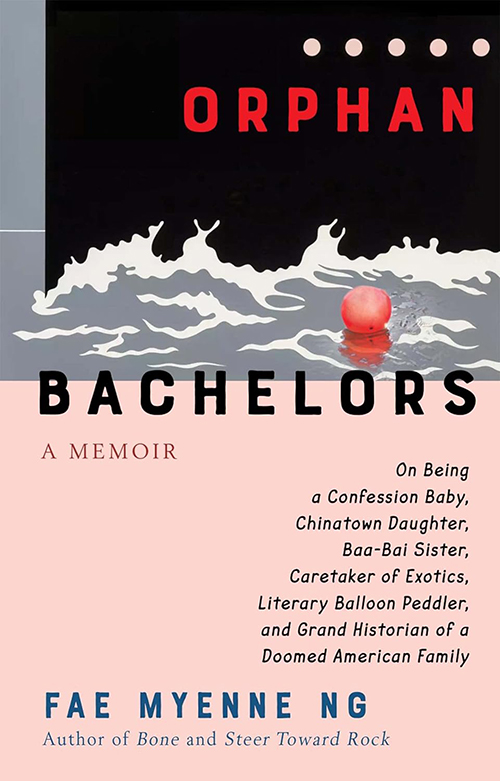
From Grove Atlantic: “In pre-Communist China, Fae Myenne Ng’s father memorized a book of lies and gained entry to the U.S. as a stranger’s son, evading the Exclusion Act, an immigration law which he believed was meant to extinguish the Chinese American family. During the McCarthy era, he entered the Confession Program in a failed attempt to salvage his marriage only to have his citizenship revoked to resident alien. Exclusion and Confession, America’s two slamming doors. As Ng’s father said, ‘America didn’t have to kill any Chinese, the Exclusion Act ensured none would be born.’
“Ng was her parents’ precocious first born, the translator, the bossy eldest sister. A child raised by a seafaring father and a seamstress mother, by San Francisco’s Chinatown and its legendary Orphan Bachelors — men without wives or children, Exclusion’s living legacy. She and her siblings were their stand-in descendants, Ng’s family grocery store their haven.”
The Black Geographic: Praxis, Resistance, Futurity co-edited by Jovan Scott Lewis, associate professor and chair in geography
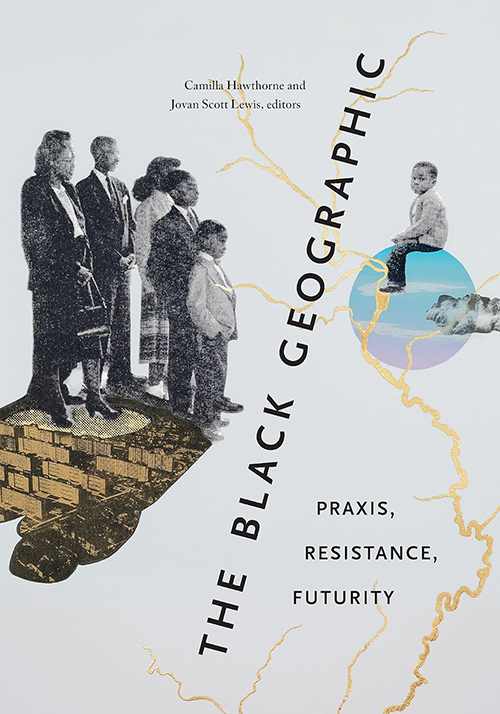
From Duke University Press: “The contributors to The Black Geographic explore the theoretical innovations of Black Geographies scholarship and how it approaches Blackness as historically and spatially situated. In studies that span from Oakland to the Alabama Black Belt to Senegal to Brazil, the contributors draw on ethnography, archival records, digital humanities, literary criticism and art to show how understanding the spatial dimensions of Black life contributes to a broader understanding of race and space.”
The Strikers of Coachella: A Rank-and-File History of the UFW Movement by Christian Paiz, associate professor in comparative ethnic studies
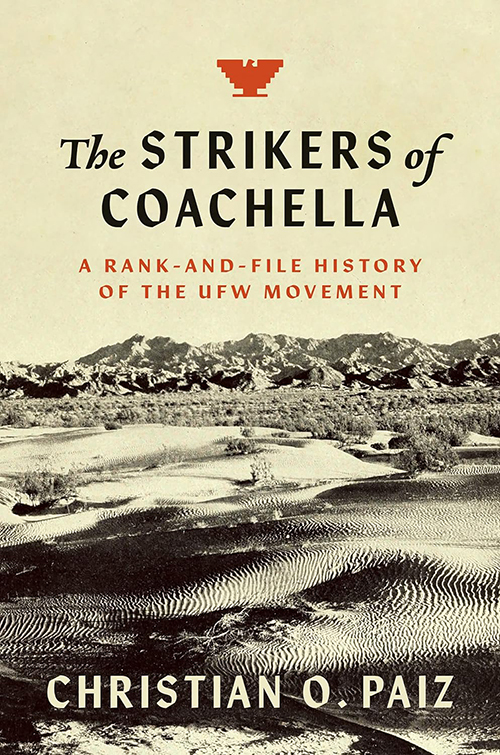
From University of North Carolina Press: “The past decades have borne witness to the United Farm Workers’ (UFW) tenacious hold on the country’s imagination. Since 2008, the UFW has lent its rallying cry to a presidential campaign and been the subject of no less than nine books, two documentaries, and one motion picture. Yet the full story of the women, men and children who powered this social movement has not yet been told.
“Based on more than 200 hours of original oral history interviews conducted with Coachella Valley residents who participated in the UFW and Chicana/o movements, as well as previously unused oral history collections of Filipino farm workers, bracero workers and UFW volunteers throughout the United States, this stirring history spans from the 1960s and 1970s through the union’s decline in the early 1980s.”
Deep Care: The Radical Activists Who Provided Abortions, Defied the Law, and Fought to Keep Clinics Open by Angela Hume, instructor for Berkeley College Writing Programs
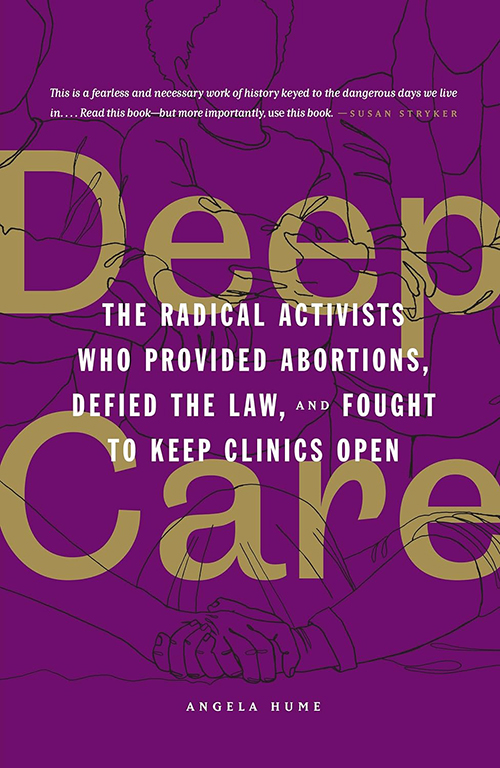
From AK Press: “Starting in the 1970s, small groups of feminist activists met regularly to study anatomy, practice pelvic exams on each other, and learn how to safely perform a procedure known as menstrual extraction, which can end a pregnancy, using equipment easily bought and assembled at home. This ‘self-help’ movement grew into a robust national and international collaboration of activists determined to ensure access to reproductive healthcare, including abortion, at all costs — to the point of learning how to do the necessary steps themselves.”
Graphic: Trauma and Meaning in our Online Lives by Alexa Koenig, co-faculty director of Berkeley Law’s Human Rights Center; and Andrea Lampros, director of communications and marketing at the Graduate School of Journalism
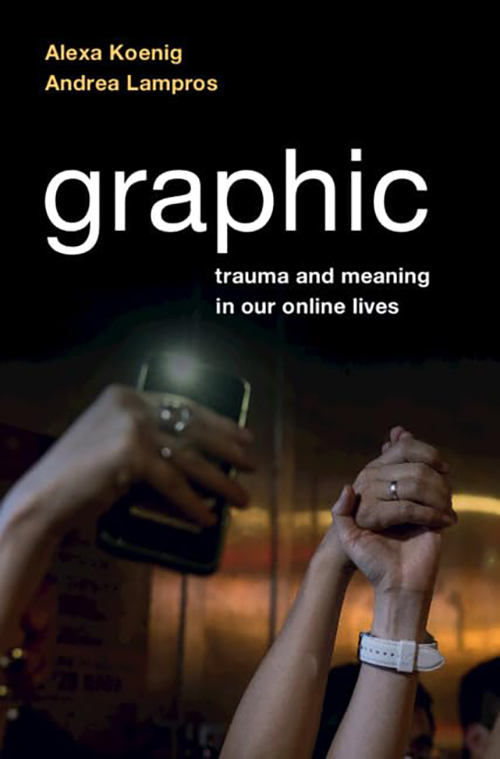
From Cambridge University Press: “Today, almost anyone can upload and disseminate newsworthy content online, which has radically transformed our information ecosystem. Yet this often leaves us exposed to content produced without ethical or professional guidelines.
“In Graphic, Alexa Koenig and Andrea Lampros examine this dynamic and share best practices for safely navigating our digital world. Drawing on the latest social science research, original interviews, and their experiences running the world’s first university-based digital investigations lab, Koenig and Lampros provide practical tips for maximizing the benefits and minimizing the harms of being online.”
Most Delicious Poison: The Story of Nature’s Toxins — from Spices to Vices by Noah Whiteman, professor of integrative biology and of molecular and cell biology

From Hatchett Book Group: “A deadly secret lurks within our spice racks, medicine cabinets, backyard gardens and private stashes.
“Scratch beneath the surface of a coffee bean, a red pepper flake, a poppy seed, a mold spore, a foxglove leaf, a magic-mushroom cap, a marijuana bud, or an apple seed, and we find a bevy of strange chemicals. We use these to greet our days (caffeine), titillate our tongues (capsaicin), recover from surgery (opioids), cure infections (penicillin), mend our hearts (digoxin), bend our minds (psilocybin), calm our nerves (CBD), and even kill our enemies (cyanide). But why do plants and fungi produce such chemicals? And how did we come to use and abuse some of them?”
Also, read this Berkeley News Q&A with Whiteman about Most Delicious Poison.
Other new books by Berkeley authors
Department of African American and African Diaspora Studies
- In the Shadows of the Big House: Twenty-First-Century Antebellum Slave Cabins and Heritage Tourism in Louisiana by Stephen Small, professor of African American and African Diaspora studies
Department of Anthropology
- Untimely Sacrifices: Work and Death in Finland by Daena Funahashi, assistant professor of anthropology
- The Spectacular Generic: Pharmaceuticals and the Simipolitical in Mexico by Cori Hayden, professor of anthropology
Department of Art Practice
- The Unruly Archive by Stephanie Syjuco, associate professor of sculpture
Department of Civil & Environmental Engineering
- Water for All: Global Solutions for a Changing Climate by David Sedlak, Plato Malozemoff Professor of Environmental Engineering; vice chair for graduate studies; director of the Berkeley Water Center
- Greek Tragedy in a Global Crisis: Reading through Pandemic Times by Mario Telò, professor of Ancient Greek and Roman studies, of rhetoric and of comparative literature
College Writing Programs
- The Word of the Muse (The Coseema Saga #3) by Bridgette Dutta Portman, instructor for College Writing Programs
- Dynamic Activities for First-Year Composition: 96 Ways to Immerse, Inspire, and Captivate Students by Michal Reznizki, instructor for College Writing Programs
Department of Comparative Literature
- Reaction Formations: The Subject of Ethnonationalism co-authored by Ramsey McGlazer, assistant professor of comparative literature
- Who’s Afraid of Gender? by Judith Butler, Distinguished Professor in the Graduate School
Department of East Asian Languages & Cultures
- Japanese Literature: A Very Short Introduction by Alan Tansman, professor of East Asian languages and cultures
School of Education
- World Yearbook of Education: Racialization and Inequality in Global Perspective co-edited by Janelle Scott, professor at the School of Education and at the Department of African American and African Diaspora Studies
Department of English
- Eggtooth (poetry) by Jesse Nathan, lecturer in English
- Pathologies of Motion: Historical Thinking in Medicine, Aesthetics, and Poetics by Kevis Goodman, professor of English
- Allegorical Moments: Call to the Everyday by Lyn Hejinian, professor emerita of English
- The Cambridge Companion to the Essay edited by Kara Wittman, associate teaching professor of English
College of Environmental Design
- Wisdom of Place: A Guide to Recovering the Sacred Origins of Landscape co-authored by Chip Sullivan, professor of landscape architecture & environmental planning
- Experiential Design Schemas co-authored by Gail Brager, Distinguished Professor of Architecture and director of the Center for Environmental Design Research
Department of Ethnic Studies
- Victory Is in the Struggle: From Barrio Boy to Revolutionary & Scholar by Carlos Muñoz Jr., professor emeritus of Chicanx Latinx studies
- Islamophobia Studies Journal, editorial board led by Hatem Bazian, continuing lecturer in Asian American and Asian diaspora studies, and chair and founder of the Center for Race and Gender’s Islamophobia Research and Documentation Project
Department of Geography
- Gramsci at Sea by Sharad Chari, associate professor of geography
Haas School of Business
- The Great Remobilization: Strategies and Designs for a Smarter World co-authored by Olaf Groth, lecturer of business and public policy
Department of History
- Reactionary Mathematics: A Genealogy of Purity by Massimo Mazzatti, professor of history and Thomas M. Siebel Presidential Chair in the History of Science
- Catholic Women and Mexican Politics, 1750–1940 by Margaret Chowning, professor of history and Sonne Chair in Latin American History
- Before the Movement: The Hidden History of Black Civil Rights by Dylan C. Penningroth, professor of law and Alexander F. and May T. Morrison Professor of History
- When Jews Argue: Between the University and the Beit Midrash co-edited by Ethan Katz, associate professor of history
Department of History of Art
- Aleksandr Rodchenko: Photography in the Time of Stalin by Aglaya Glebova, associate professor of history of art
- Painting the Inhabited Landscape: Fitz H. Lane and the Global Reach of Antebellum America by Margaretta Lovell, professor of history of art
- Giotto’s Arena Chapel and the Triumph of Humility by Henrike Lange, professor of history of art and of Italian studies
Department of Linguistics
- The Unnaming of Kroeber Hall: Language, Memory, and Indigenous California by Andrew Garrett, professor of linguistics and Nadine M. Tang and Bruce L. Smith Professor of Cross-Cultural Social Sciences
Othering & Belonging Institute
- Just Action: How to Challenge Segregation Enacted Under the Color of Law co-authored by Richard Rothstein, senior fellow at the Othering and Belonging Institute
Department of Political Science
- Contested Liberalization Historical Legacies and Contemporary Conflict in France by Jonah D. Levy, professor of political science, and vice chair and director of Undergraduate Studies
- The Cambridge World History of Genocide: Volume 3, Genocide in the Contemporary Era, 1914–2020 by Scott Straus, professor of political science
Department of Psychology
- Awe: The New Science of Everyday Wonder and How It Can Transform Your Life by Dacher Keltner, professor of psychology and co-director of the Greater Good Science Center
Department of Slavic Languages & Literatures
- V is for Victorine by Anne Nesbet, professor of Slavic languages and literatures and of film and media
Department of Theater, Dance and Performance Studies
- The Creativity Complex: Art, Tech, and the Seduction of an Idea by Shannon Steen, associate professor of theater, dance and performance studies and associate dean for Programs & Planning in the College of Letters and Science